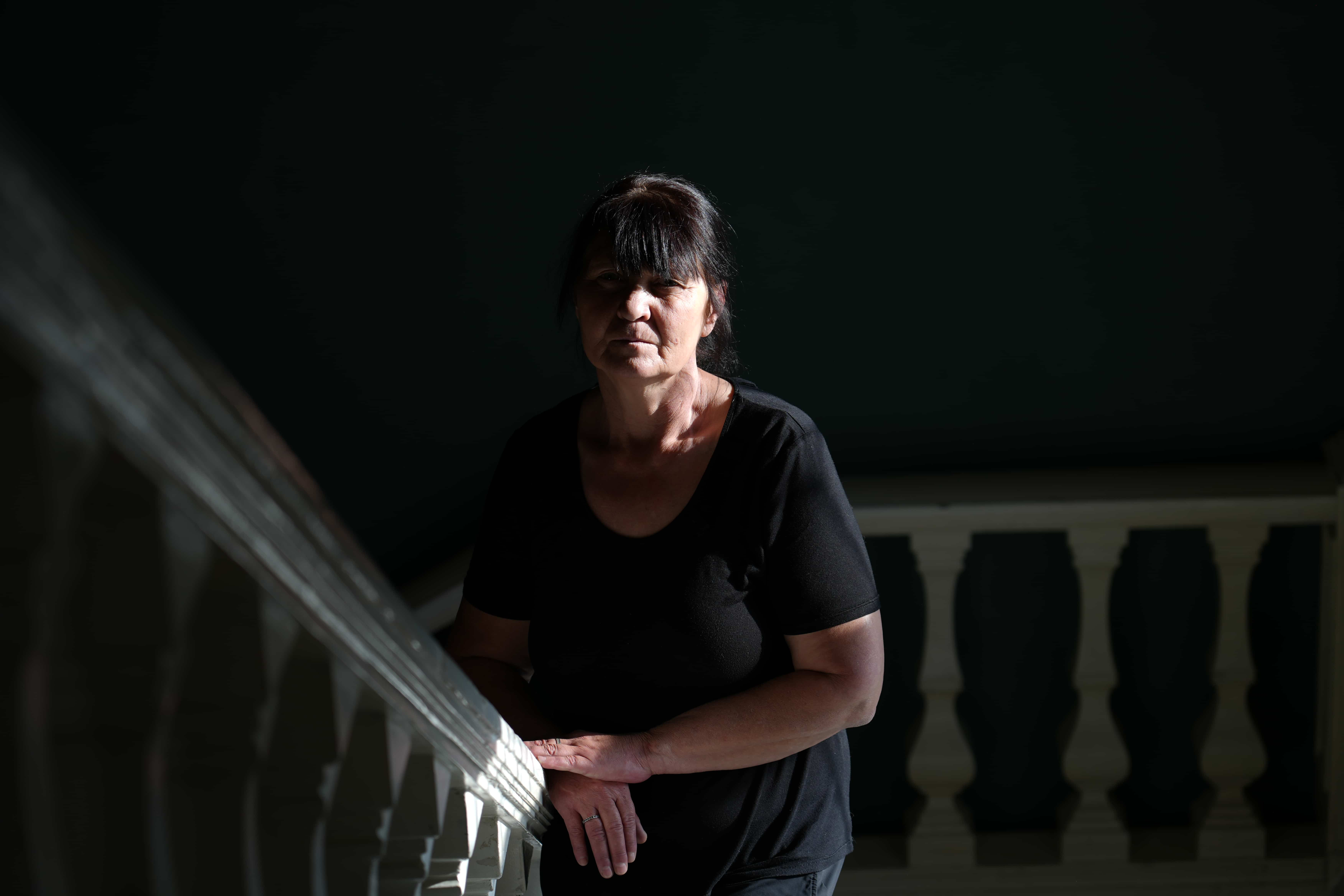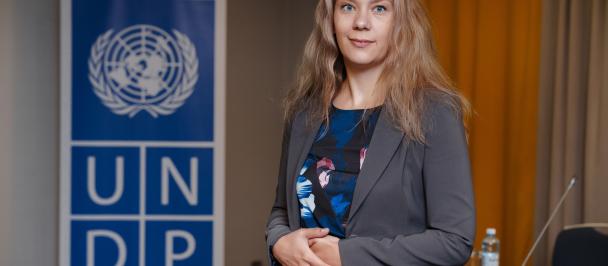The Price of Freedom: Tatyana Medenko's Story
July 17, 2024

Tatyana Medenko from Karaganda spent 20 years behind bars. Her journey into drug addiction began at just 14, despite coming from a well-off family. They lived comfortably, with a father, mother, and brothers. Her mother was a respected veteran worker whose photograph proudly hung on the honor board.
When Tatyana’s mother discovered her daughter’s opioid use, she tried desperately to help but ultimately failed. She concealed Tatyana’s addiction, allowing her to use drugs at home to hide the truth from her colleagues.
“The children of my mother’s colleagues sometimes drank. I didn't drink because I was using drugs. I would join them, eat, and when her colleagues praised me, saying, ‘Oh, Valya, what a wonderful daughter you have!’, my mother would tell me privately, ‘If only they knew the truth about you! Go away, I can’t bear it.’ While my mother’s colleagues admired me for not drinking or smoking, I was secretly using drugs,” Tatyana recalls.
Between the ages of 18 and 25, Tatyana managed to quit all her harmful habits. She neither used drugs, smoked, nor drank. During this period, she gave birth to two healthy children: a son and a daughter. However, during the “perestroika” period, her life unraveled. She relapsed into drug use, this time with her husband, finding it “romantic.” This led to her first prison sentence, which she kept hidden from everyone—colleagues, neighbors, and relatives. After her mother’s death, Tatyana lost touch with her family for many years. Her son was the first to find her, never giving up hope of reuniting the family. Her daughter, however, struggled to forgive her parents.
“It’s been 10 years since I was released. I work, and I’ve reestablished connections with all my relatives. I communicate with my children, grandchildren, and all my relatives. It took time, but I worked towards it. If I smoke, inject, or drink now, I know my children will immediately cut ties with me because they are ashamed. My children even have a different last name now,” Tatyana shares.

Tatyana faced prejudice from the police due to her past imprisonment. After her release in 2014, she went to the police for a certificate. According to her, the district officer refused to register her and threatened to imprison her again. She lived a normal life for a year and a half, working, but when it came time to update her documents, she found out she was on a wanted list. The fear of being imprisoned again overwhelmed her, but a stroke of luck helped her. A completely unfamiliar police officer heard her story and helped her get registered.
“I managed to restore my documents. I am grateful to him because if he hadn’t extended a helping hand at that moment, I would have been imprisoned again. What would have happened next is anyone’s guess” Tatyana says.
A few years later, Tatyana found herself with easy access to drugs again and relapsed. Her health deteriorated, and she had a high fever for a month and a half. Despite having documents, hospitals in Almaty did not admit her due to a lack of insurance. In one medical facility, she was diagnosed with sepsis and given three days to live. Acquaintances helped her get into the “Pana” social adaptation center.
“I thought, since the doctors said I would die in three days, why bother people? I’ll go to the center on Dundicha Street to die. I spent three days there. When I didn’t die but continued to suffer, I called acquaintances and explained the situation. They scolded me but then took me to a hospital in Tastak. I was diagnosed with pneumonia. It turned out to be nothing serious: just needed to take penicillin, and it would have passed,”Tatyana shares.
The health problems didn’t end there. Her legs began to hurt, making it difficult to walk. She moved with crutches or a cane. Despite all the difficulties, she worked—caring for an elderly woman, feeding, and bathing her. She was paid 2,000 tenge for two hours of work.
In 2019, Tatyana’s life took a turn with “Revansh” a comprehensive support center for people in difficult life situations. The “Revansh” Public Fund was established five years ago, targeting women released from prison and women living with HIV. The organization operates a comprehensive support shelter. “Revansh” is one of the recipients of the “Law and Access” grant under the UNDP SCALE initiative. These grants are specifically aimed at developing and supporting strategies, tactics, and approaches to combat discriminatory and punitive laws, policies, and practices affecting vulnerable populations. Such crisis centers had never been part of Tatyana’s life.

“When I was released, I had never lived in crisis centers. It was hard for me. I needed moral, not material, support. When there are difficulties in life, some turn to alcohol, others to drugs. This is a guaranteed return to prison,”Tatyana says.
At “Revansh,” she met Elena Bilokon, the fund’s director. Initially, Tatyana volunteered, but under Elena’s guidance, she started training. Now she is a certified consultant, able to advise people living with HIV.
Statistics show that one in three women who seek help at the “Revansh” fund is HIV-positive.
“Recently, we had a case—a woman was released from prison with breast cancer, probably why she was released and taken to a hospital. She was also pregnant and HIV-positive. The hospital did not admit her—no insurance. Even after paying for insurance, she was still not admitted because she had been imprisoned. She came to us, and stayed for three days. Our social workers complained to the Ministry of Health, seeking help for her. Why is it like this? She feels pain just like anyone else,” Tatyana explains.
Many people don’t understand that HIV is not transmitted through air or water, and they are unaware that people living with HIV receive therapy. During treatment, the virus becomes inactive, and an infected person cannot transmit it to others. Even after contact with an HIV-positive person, one can go to an AIDS center and receive post-exposure prophylaxis to completely prevent infection. Often, people distrust those living with HIV due to misinformation or ignorance about the disease.
The “Revansh” fund has given many people hope for a new life. Inmates, former or current, people living with HIV, those struggling with drug addiction—they all need moral support and a roof over their heads. They need help adapting and finding work. Tatyana shared that some families have reunited, and some people have started their businesses.
“I try to talk to those who come to our fund. I explained that I used to use drugs but overcame the addiction. I tell them, ‘Look at me. I only reunited with my family at 52, and 35 years of my life were wasted.’ Everyone needs a purpose in life,” Tatyana says.

***
The UNDP implements the SCALE initiative, aimed at promoting progress towards the Global “10-10-10” HIV targets by expanding proven and evidence-based key approaches and strategies.
A key component of SCALE is the “Law and Access” grant program. These grants are investments in enhancing the capacity of local organizations that are well aware of their communities’ needs. Over the past two years, eight organizations in Kazakhstan, Kyrgyzstan, Tajikistan, and Ukraine have received grants with SCALE support, two of which are implemented in Kazakhstan. One of them is the “Revansh” Public Fund in consortium with the “My Home” Public Fund and the “Nursenim” Public Fund.
Under this initiative, “Revansh” supports women from the “My Home” crisis center in Temirtau, trains primary healthcare and other service providers, and works to reduce stigma and discrimination against people living with HIV, former prisoners, and people who use injectable drugs.

 Locations
Locations



